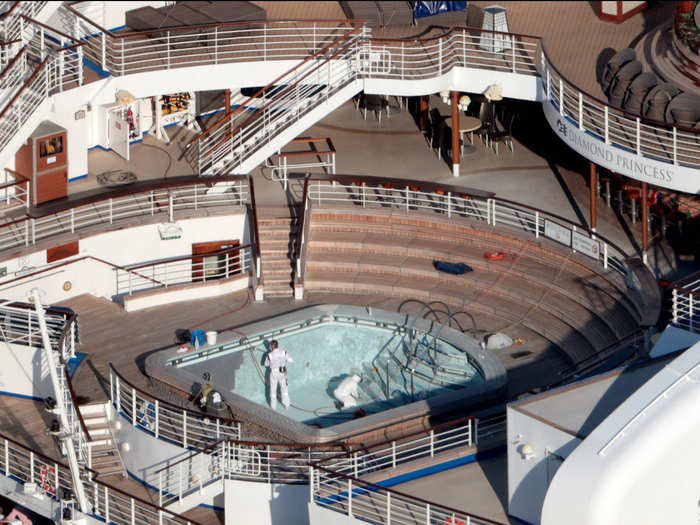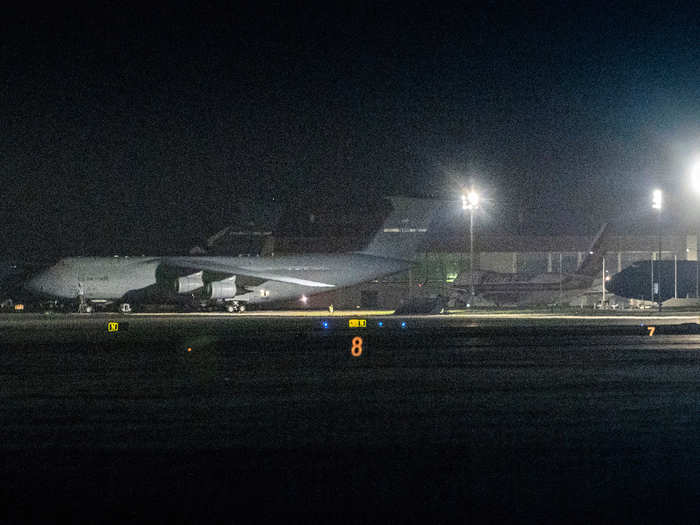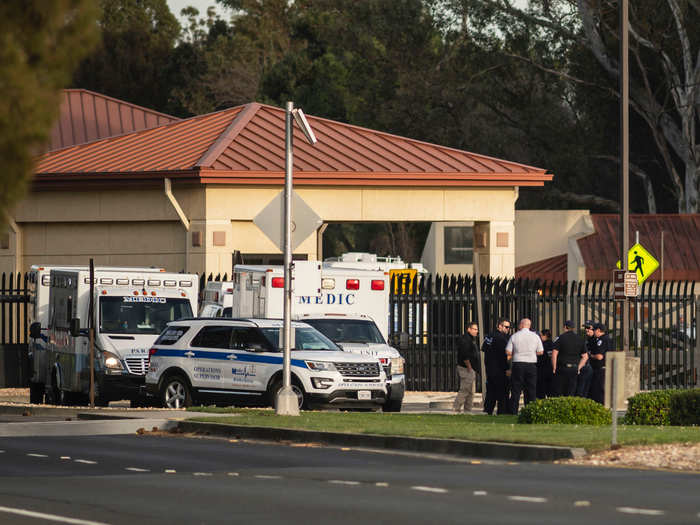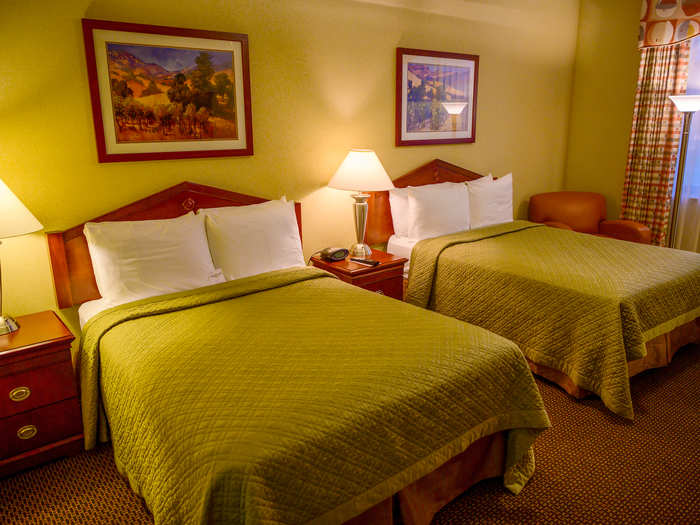Health experts criticized the decision to keep people quarantined on the ship.
"From a virologist's perspective, a cruise ship with a large number of persons on board is more an incubator for viruses rather than a good place for quarantine," Anne Gatignol, a microbiologist who studies viruses at McGill University, told the Montreal Gazette.
Japanese officials just admitted that the quarantine was "flawed," and may have allowed the spread of infections to more passengers and crew members.
Some of the infected evacuees were taken to Lackland Air Force Base in San Antonio, Texas. Others, like Wright and his wife, were taken to Travis Air Force Base in Fairfield, California.
Two days after the couple arrived on the base on February 17, CDC staffers donned in hazmat suits told Wright that he had tested positive and was to be transferred to one of the city's UCSF hospital campuses.
"I was never anticipating anybody coming to my door to say I'm positive," Wright told the Chronicle. "The news came, we cried a little bit, and then I got a little upset. I was more upset at leaving her alone."
He was strapped to a gurney and transferred via ambulance.
Wright told the Chronicle that he has undergone more tests since the positive reading that landed him in the local hospital. He tested negative for one on February 20, then positive for one on February 21. He took two more on Sunday and Monday and depending on those results, he may be able to transition to a home quarantine, something that some 8,400 Californians are doing as the virus continues to spread.




